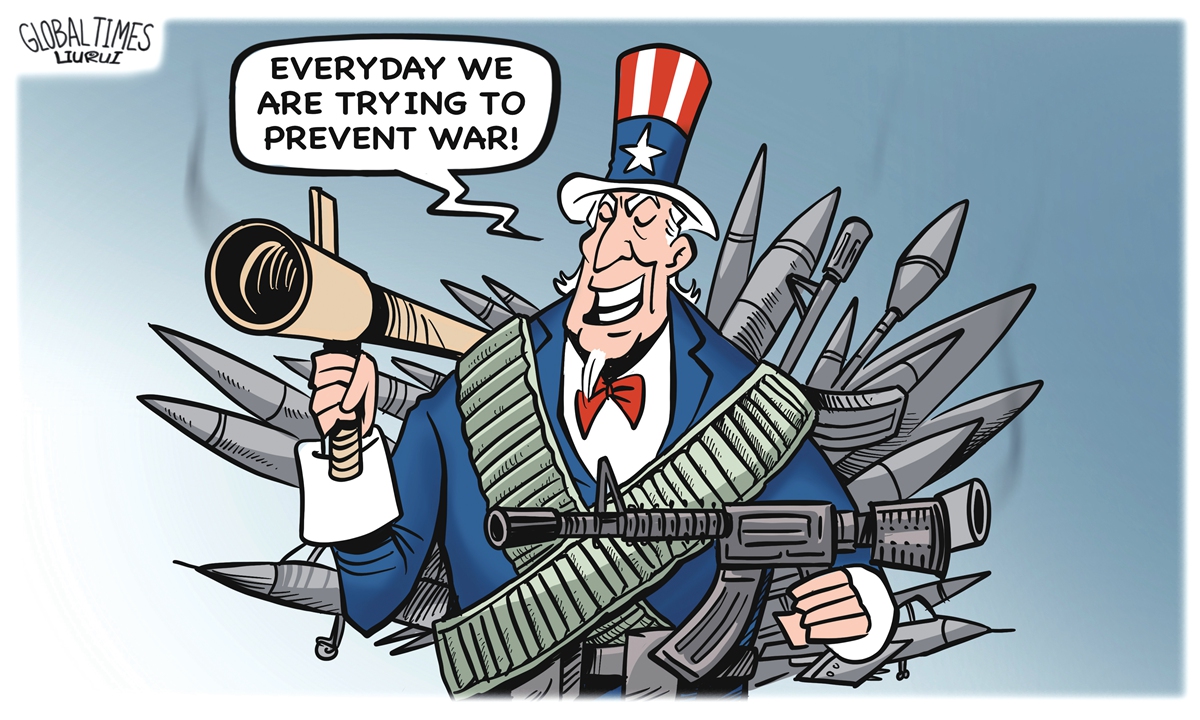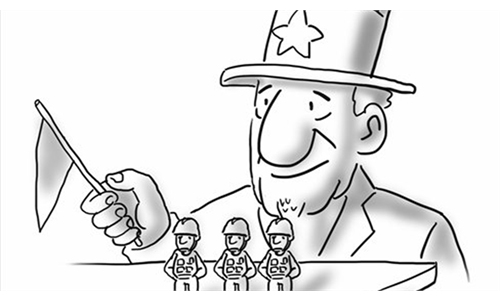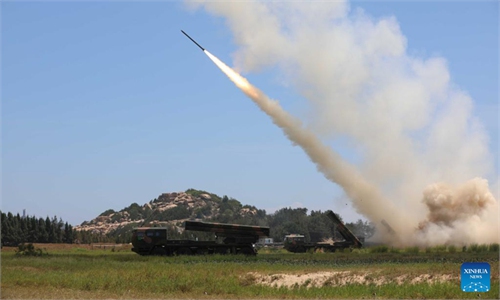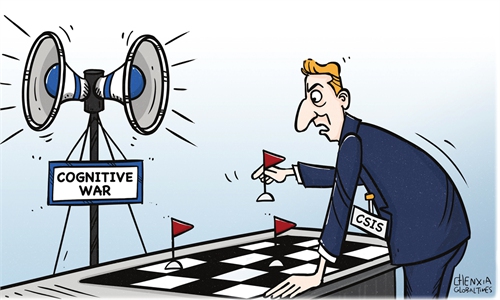
US hypocrisy Illustration: Liu Rui/GT
The US military-industrial complex, for a long time, has been obsessed with selling weapons through fearmongering of war or even inciting real ones.The Center for Strategic and International Studies (CSIS), a Washington-based think tank, released on Monday a report of a war games simulation where the Chinese mainland launched a full-scale attack on the island of Taiwan with the involvement of the US and Japan. The result, according to the report, would be a "pyrrhic victory" for the US and its allies, while China's People's Liberation Army (PLA) would be "in shambles."
Experts told the Global Times the outcome of the CSIS simulation doesn't reflect what actually might happen on the battlefield. Yuan Zheng, deputy director and a senior fellow of the Institute of American Studies at the Chinese Academy of Social Sciences, believes that the conduction of the war game is full of subjective judgments and factors. For instance, the development of a country's military power or battle command changes dynamically, and they are hard to predict through simulations.
Song Zhongping, a Chinese military expert and TV commentator, noted that the result of the war game was a severe misjudgment that overestimated the military strength of the US and Japan and their determination to cooperate in defense, while underestimating the comprehensive combat capability of the PLA. Despite that the US Navy and Air Force are capable of gaining advantages in the far sea, they will find difficulties enjoying such strengths near China, not to mention developing a complete military superiority over the PLA there. Washington is wasting US taxpayers' money seeking to accomplish an impossible mission.
Song believes that the CSIS war simulation is highly provocative and serves the US political correctness to hype the "Chinese military threat" theory. It aims to seek more financial support for the US military and military-industrial complex and develop a comprehensively asymmetric military advantage over the PLA.
Nevertheless, the US war machine - consisting of the US military and arms industry - will likely take advantage of the simulation results to pursue its own interests. It wants more military spending from Congress to develop more advanced weapons and equipment, as well as to arm its allies' troops to strengthen their ability to counter the PLA.
The US military-industrial complex will be pleased to witness intensifying tensions in the Taiwan Straits. If a military conflict breaks out in the region or there is a potential risk of one, Washington will certainly persuade the Taiwan regional authorities to bulk-buy US-made weapons and equipment. At the same time, by hyping up the "China threat," the US will push for unnecessary fear within countries in the Asia-Pacific region, which are likely to enhance defense cooperation with the US in turn. Tying these countries and regions tighter to its chariot while profiting from the fearmongering will be a great deal for the US, particularly its war machine.
The US has been stirring up trouble and disturbing the situation in the Taiwan Straits. It is making technical preparations to assist Taiwan's defense. As Washington reinforces the self-defense capability of Taiwan's military, it has also been strengthening the forward bases on the first and second island chains and enhancing the integration capabilities between them, experts said.
In resolving the Taiwan question, China prioritizes striving for the peaceful reunification of the two sides of the Straits. However, the country will hold to its will and determination to safeguard national sovereignty and territorial integrity under any circumstances.
No matter how Washington hypes up the "Chinese military threat" theory or plays down Beijing's military capabilities, China needs to firmly adhere to its strategy of strengthening the military and improving the fusion of military mechanization, informatization and intelligentization. At the same time, the mainland also needs to prepare for the military struggle in the Straits in a normalized and targeted manner. Ultimately, the US will have to deal with a well-prepared Chinese mainland, and its projected "pyrrhic victory" may even become a Waterloo.



